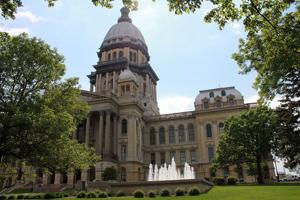(The Center Square) – The Illinois General Assembly is ready to send the governor legislation that would provide students with options and resources to deal with mental health issues.
Senate Bill 4028 was filed by state Sen. Mike Simmons, D-Chicago, in January. If signed by Gov. J.B. Pritzker, it would require schools to provide information on how and where students can find mental health resources in the state.
The bill also includes the forming of the Student Mental Health Council consisting of six members with different backgrounds to recommend systemic changes to better improve mental health among young students.
The task force will have a member of the LGBTQ community, a person of color, and at least one woman.
Simmons said the inspiration for the bill came after meeting with the Youth People’s Legislative Councils, when he spent time discussing mental health with students.
“It is a committee made up of young people from schools and this is something that they consistently raise that either they or their friends are experiencing,” Simmons said, adding that many of the issues are foreign to the students.
“It’s things they necessarily do not have a word for or can’t quite name it but they know that they are not well and do not know where to go,” Simmons said. “This legislation is an effort to help them navigate.”
According to the U.S. Centers for Disease Control and Prevention (CDC), mental health-related visits are up by 24% since 2020 for children ages 5-11, and visits by children ages 12-17 have gone up 31%.
Simmons said that the pandemic has increased the need for this legislation.
“This legislation is an effort to help students with a lot of the mental health crisis that’s been born about by the pandemic and aggravated by the pandemic,” Simmons said.
Schools in Illinois were ordered by the governor to suspend in-person education through most of 2020 and many districts across the state continued with remote learning well into 2021. A recent report from the National Bureau of Economic Research ranked Illinois No. 43 of all 50 states and the District of Columbia for school policies during the pandemic.
“[Lack of in-person learning] hurt the children and it didn’t help health, it might have even hurt the health a little bit but definitely didn’t improve health, didn’t reduce COVID or anything like that,” Mulligan told The Center Square.











